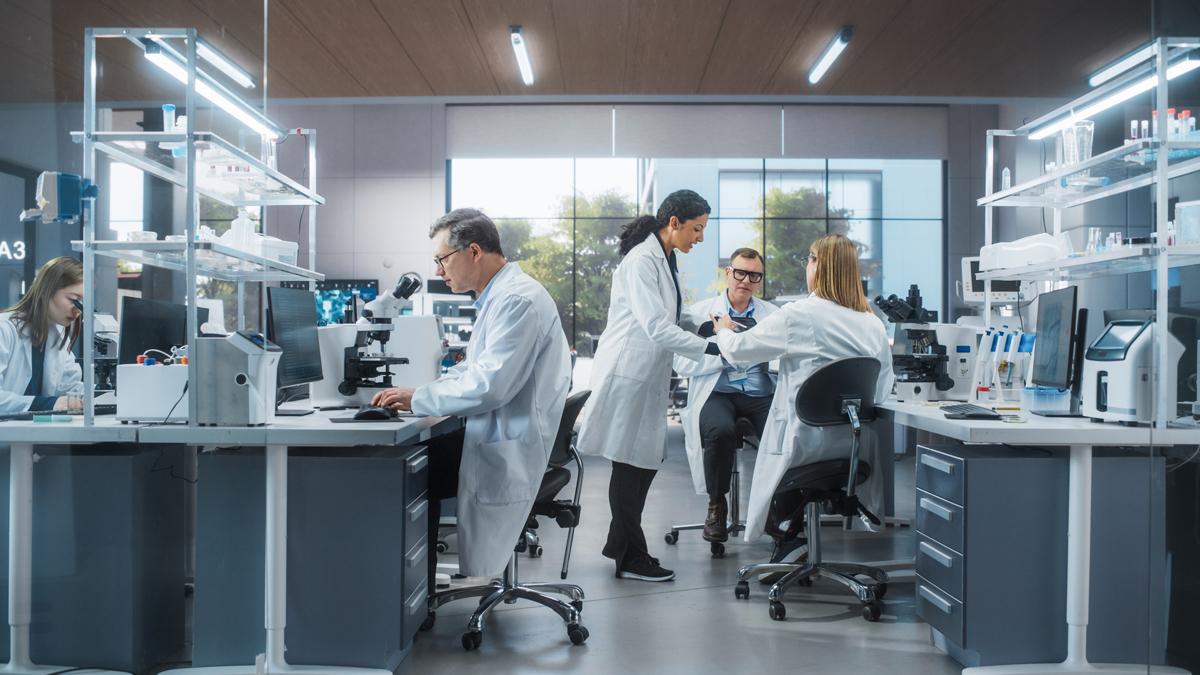The UK can’t just be a life sciences lab – we need manufacturing success too

Rachel Reeves is right: the UK is at the forefront of life sciences, with some world-leading research and innovation. But there’s a big hole in the plan the chancellor outlined in her big growth speech yesterday. The UK isn’t turning enough of that research into real-world impact.
We excel at discovery, but when it comes to manufacturing, we’re losing out. Groundbreaking science happens here, yet, companies too often take their ideas overseas.
There’s a simple reason for that. The UK lacks the facilities, incentives, and policy support to keep manufacturing at home. Without tackling this head-on, talk of science superpower status is empty, or at least comes too soon.
Look at the numbers. Manufacturing’s contribution to UK GDP (as a whole, not just life sciences) has halved over the past two decades. Meanwhile, other countries – both in Europe and the US – are ramping up investment and growing production capabilities.
If we want to be a global leader in life sciences, we can’t afford to be reliant on other countries to produce and commercialise our own ideas and innovations. The government has made the right noises about investment, but without a clear strategy to fix our manufacturing gap, we’ll continue to lose businesses overseas.
Addressing this gap isn’t just about economic growth: it’s about resilience. In an increasingly competitive global market, countries that invest in end-to-end capabilities, from research to manufacturing, are the ones that attract and retain the most innovative businesses. Without a strong domestic manufacturing base, the UK risks becoming a hub for ideas that are commercialised elsewhere, missing out on the economic benefits, job creation, and technological leadership that come with scaling production at home.
The golden triangle is key, but we need to think broader
The Chancellor highlighted DeepMind, AstraZeneca, and universities, which are all major players in the Golden Triangle of London, Oxford, and Cambridge.
These institutions are fantastic, but they aren’t the whole story. Life sciences strengths exist across the UK. Think of places like Manchester, the West Midlands, or Wales - which I call home, along with many life sciences firms. If the government really wants to drive growth, it needs to look beyond the South East bubble and champion other regions, too.
Take biotech spinouts, for example, given they are such an important part of our life sciences future. Between 2011 and 2021, Oxford, Cambridge, Imperial, and UCL generated 524 spinouts, including 172 in life sciences – 50% more than the next ten universities combined. That’s an impressive figure, but it also highlights how investment and infrastructure are concentrated in just a few key areas.
Skills are another big issue I’d like to see better addressed. The Chancellor has also recently spoken, at Davos last week, about attracting the world’s best minds to the UK, which is critical for the sector’s success.
But, right now, high visa costs and slow processing times are holding us back. A recent analysis by the Royal Society revealed that UK visa fees are up to 17 times higher than those in competitor nations like the US, Canada, and Australia. Hard to figure why a skilled worker would choose the UK with such barriers in place. If we want top scientists and entrepreneurs to choose the UK, we need to make it easier and cheaper for them to come here.
Still waiting on the detail
It shouldn't be ignored that Reeves has the right ambition - we’re finally gunning for growth. Some of her announcements, such as transport improvements in the Oxford-Cambridge corridor or backing the Cambridge Cancer Research Hospital, are steps in the right direction.
But without a serious plan for scaling up manufacturing (in life sciences and elsewhere), supporting UK firms, and spreading our ambitions beyond the Golden Triangle, we’re likely to remain stuck exactly where we are: brilliant at research, but falling short on the rest.












